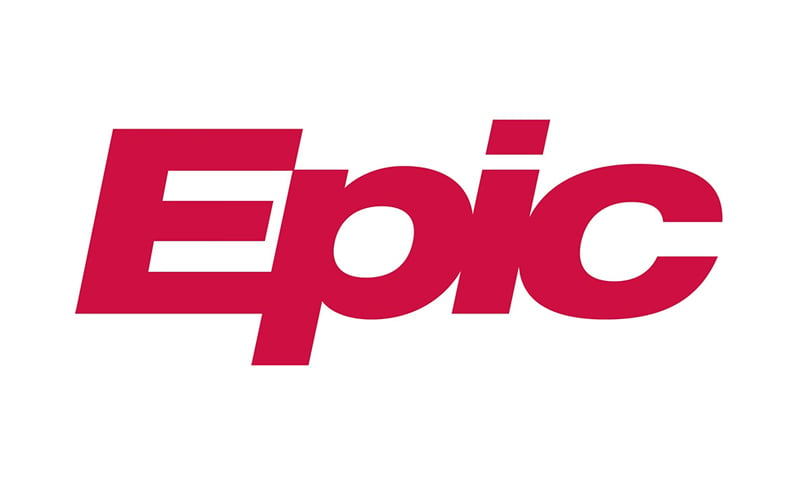Get Advanced Training
Achieving mastery with ASAP, as with any tool or skill, requires not just experience with it, but also advanced training. Epic provides the following options for engaging ED physicians to improve their experience with the software. To help facilitate this growth, users can become an Epic:
Physician Power User: Learn tips and tricks to optimize your use of Epic in virtual, topic-specific Power User classes taught by Epic trainers, including an ED Quick Wins class where you can learn how to efficiently customize your workspace, dispo patients, and more. Power Users are well positioned and able to share their knowledge about how to increase usability with their peers.
Physician Builder: Bridge the gap between users and the project team by empowering ED physician and nurse builders, who are clinicians trained to make changes that have a high impact—changes like modifying SmartForms, alerts, and views. These “bilingual” builders are positioned to find problems, provide solutions, and get enhancements out to users faster and save time for your project team. Clinical staff feel they have a champion who understands what they do to help focus the IT team on the root of the issue. The IT team trusts that the builders are requesting the right tools for the right job. (Learn more at training.epic.com)
Interaction Between ED Physicians and Epic’s ASAP Team
The final, and often most under-used component in the ED clinicians/IT/Epic relationship, is direct communication between ED clinicians and representatives from Epic’s ASAP team. Each of Epic’s customers has dedicated ASAP technical services representatives, as well as many other roles who can provide expertise on how to make the best use of the system. Below are some common ways for ED clinicians to get in touch with Epic:
Talk ASAP call. Each year, ASAP organizations get an opportunity to talk directly to ASAP leads from software development, technical services, and implementation. These calls provide Epic with first-hand insight into what is working well and what isn’t and ED clinicians a glimpse into what’s on the development horizon.
Host Epic support on-site. The ASAP technical services and development staff are encouraged to spend time seeing the software in action as often as they can. In addition to helping shape future versions of Epic, hosting Epic staff can help your ASAP team:
- Find solutions to issues that are impacting user happiness.
- Work with analysts to address wish-list items.
- Discuss upgrade features and feedback.
- Improve reporting content, such as dashboards and SlicerDicer.
- Review existing Foundation System content for potential improvements to your organization’s setup.
Epic Conferences
Epic Hosts Two Annual Conferences
User Group Meeting (UGM): In the fall, executives, leaders, managers, and other Epic users gather for Users Group Meeting (UGM) to share what they’re proud of and to learn from others so they can apply those new ideas at home. This collaboration means their innovations, strategies, successes, and lessons learned can make an impact beyond their organization.
Expert Group Meeting (XGM): In the spring, experts in Epic, such as physician builders, meet with their peers to hone their skills and gain and share insights at Experts Group Meeting (XGM). Here, you and your peers explore the known and unknown in the worlds of software build, training, performance, and workflow. The ASAP Advisory Council meets annually during XGM and provides an opportunity for the ASAP community to interact and exchange ideas with fellow attendees and provide feedback to Epic staff. It gives Emergency Department users a chance to meet and share experiences, insights, and solutions.
Epic Boost
If your local hospital or health system IT resources are not able to accomplish the work that needs to be done to optimize ASAP, it is possible to hire consultants through Epic’s Boost program which Epic staff join your in-house ASAP team to help with long-term staff augmentation, as a stop-gap during back-fill hiring, or to supplement your existing team during particularly busy months. This can be especially helpful for large new feature rollouts or third-party software integration rollouts. Boost contracts are for 40 hours per week and typically last 3+ months (minimum 1 month).
All Images Copyrighted: © 2021 Epic Systems Corporation
Created by: Zach Jarou, MD, MBA (St. Joseph Mercy Health System); Heather Heaton, MD (Mayo Clinic); Chris Alban, MD, MBA (Epic); John Reis (Epic); Nick Genes, MD, PhD (Mt. Sinai); Jeff Nielsen, MD, MS (NEOMED); on behalf of the ACEP Health Innovation Technology Committee



